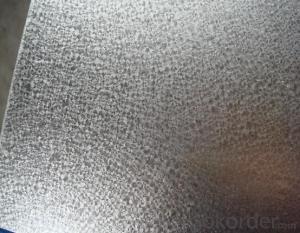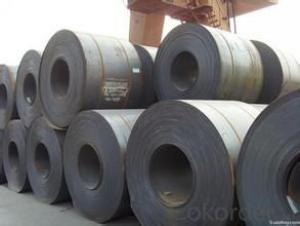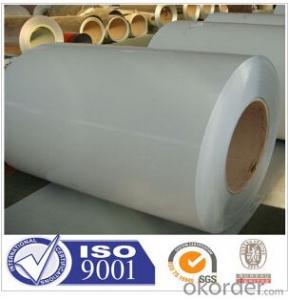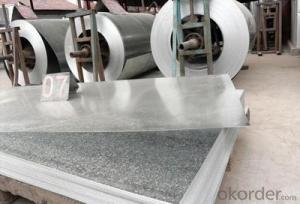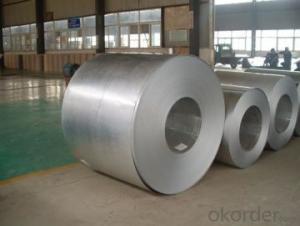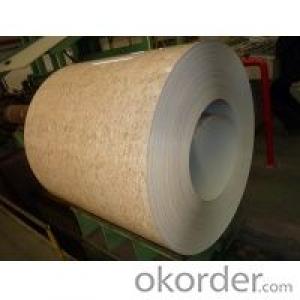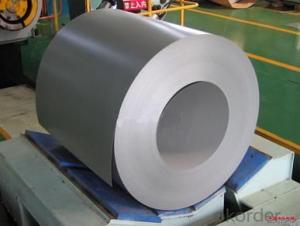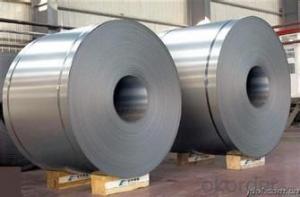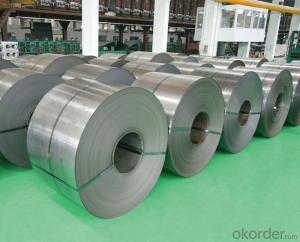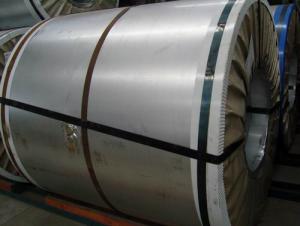Gavalume Mg steel coils and sheets
- Loading Port:
- Tianjin
- Payment Terms:
- TT OR LC
- Min Order Qty:
- 50 m.t.
- Supply Capability:
- 10000 m.t./month
OKorder Service Pledge
OKorder Financial Service
You Might Also Like
Quick Details
| Grade: | 1000 Series | Thickness: | 0.13-3.0mm | Place of Origin: | Zhejiang China (Mainland) |
| Brand Name: | GL coil | Model Number: | A1100, A1050, A1060 | Type: | Steel Coil |
| Technique: | Cold Rolled | Surface Treatment: | galvalume,Coated | Application: | Ship Plate,commercial use or used in construction , roof , autocar ect. |
| Special Use: | High-strength Steel Plate | Width: | 600-1250mm | Length: | As to your request |
| Material: | SGCC, SGCH, SPCC, CGCC | galvalume coil: | galvalume coil | Weight (/roll): | 3-5MT |
| Inside Diameter: | 508mm/610mm | Corlor: | without | Alloy Or Not: | Non-alloy |
| AZ coating: | 60-180g/m2 |
Packaging & Delivery
| Packaging Detail: | within 10-20 days after receiving deposit(or as per the order qu |
| Delivery Detail: | Standard export packing or following customer's demand |
Specifications
GL Coil
1.our material are from big mill
2.surface and edge is glossy
3.our package is export package
Galvalume steel coil
Specification
Thickness | 0.15-3.5mm |
Thickness tolerance | +/- 0.01mm , |
Width | 600-1500mm |
Width tolerance | +/- 2mm |
Length | As to client's require |
Zinc coating | 40g-150g |
Standard | ASTM, AISI, DIN, GB,JIS |
Grade | SGCC,DC51D,DX51D,DX52D,,SGCD,Q195,Q235,SGHC,DX54D, S350 GD, S450 GD,S550 GD ect. |
Type | Steel coil, steel sheets/ plates, corrugated steel sheets/plates |
Technique | Hot rolled, cold rolled, galvalume / Alu-zinc |
Spangle type | Mini/regular/big/zero spangle |
Surface treatment | Chromed with passivation / environmental chromed |
Oiled/slightly oiled/ dry/ anti-fingerprint / skinpassed | |
Packing | Export standard. |
Min order | 50 tons |
Coil weight | 4-6 tons |
Steel Type | AS1397-2001 | EN 10215-1995 | ASTM A792M-02 | JIS G3312:1998 | ISO 9364-2001 |
Steel for Cold Forming and Deep Drawing Application | G2+AZ | DX51D+AZ | CS type B,type C | SGLCC | 1 |
G3+AZ | DX52D+AZ | DS | SGLCD | 2 | |
Structural Steel | G250+AZ | S250GD+AZ | 255 | - | 250 |
G300+AZ | - | - | - | - | |
G350+AZ | S350GD+AZ | 345 Class1 | SGLC490 | 350 | |
G550+AZ | S550GD+AZ | 550 | SGLC570 | 550 |
Grade | Tension Test | ||
Yield Strength (MPa) | Tensile Strength (MPa) | Elongation% No Less Than | |
A80mm | |||
DX51D+AZ | 140-350 | 270-500 | 22 |
DX52D+AZ | 140-300 | 270-420 | 26 |
DX53D+AZ | 140-260 | 270-380 | 30 |
DC54D+AZ | 120-220 | 260-350 | 36 |
Application
1. Architecture Roofs and outside walls of civilian and industrial buildings, garage doors, fencings and window blinds
2. Appliances Industry Outer clad sheets for washing machine, refrigerator, television, air conditioner and ventilation system, explosion-proof strip, solar water heater and appliance parts
3. Auto Industry Muffler, heat shields of exhaust pipe and catalytic converter, auto parts & accessories under the frame, signboard in highway
4. Industrial Instruments Electric control cabinet, industrial refrigeration equipment, automatic vending machine
Service
1.MOQ:50 ton.
2.Delivery time;15-30days
3.Payment:30% deposite, 70% in L/C before delivery.
4.We can guarantee 100% inspeciton before the shipment
5.We can 100% supply MTC.
- Q: What are the different methods of transporting steel coils?
- Depending on factors such as weight, size, and distance, there are various methods available for transporting steel coils. These include: 1. Flatbed trucks: Steel coils can be transported on flatbed trucks, which have a spacious open platform for easy loading and unloading. This option is commonly used for shipments of short to medium distances and provides convenient access to the coils. 2. Rail transport: Steel coils can also be transported by rail using specialized coil cars with curved interiors to securely hold the coils. Rail transport is often preferred for long-distance shipments due to its cost-effectiveness and capacity to handle large quantities. 3. Shipping containers: Steel coils can be loaded into shipping containers for transportation via sea or inland waterways. To prevent movement during transit, the coils are usually secured inside the container using bracing or blocking materials. This method is commonly employed for international shipments and facilitates easy handling and transfer between different modes of transportation. 4. Barges: In some cases, steel coils can be transported on barges along rivers, canals, or other inland waterways. Barges are particularly suitable for large and heavy shipments, offering a cost-effective and efficient means of transportation. 5. Roll-on/roll-off (RoRo) vessels: RoRo vessels are specialized ships designed to transport vehicles and large cargo that can be rolled on and off the ship. Steel coils can be loaded onto trailers or flatbeds and driven onto the vessel, providing a convenient transportation option. 6. Air freight: Although less common due to higher costs, steel coils can also be transported by air. This method is typically used for urgent and time-sensitive shipments or when the distance is too great for other modes of transportation. Air freight offers the advantage of speed and can be a viable option in certain situations. In conclusion, the choice of transportation method for steel coils depends on factors such as cost, distance, time frame, and logistical requirements. Freight forwarders and logistics providers can assist in determining the most suitable method for a specific shipment.
- Q: Me and my cousin have been arguing about this. I said that superman is made out of steel, but he says that people just call him the man of steel because he's hard like steel. Does he have steel in his body?
- Superman has no steel in his body. When Superman was called The Man of Tomorrow, which was many years ago, he wasn't made of tomorrow.
- Q: Will a stainless steel mesh screen scratch a titanium cup, or vice versa?I have a titanium french press and am thinking about replacing the included press with an all steel one. I am worried about little flakes of titanium or steel getting ground off into the coffee when the press slides in and out. The original press has a polyester cloth for a screen, so nothing scratches.
- Will Titanium Scratch
- Q: What is the average lifespan of a steel coil?
- The average lifespan of a steel coil can vary depending on several factors. These factors include the quality and type of steel used, the conditions in which the coil is stored or used, and the maintenance and care it receives. Generally, a well-maintained steel coil can last anywhere from 10 to 30 years. However, this is just an estimate and the actual lifespan can be shorter or longer depending on the aforementioned factors. For instance, if the steel coil is exposed to harsh environmental conditions, such as extreme temperatures or corrosive elements, its lifespan may be reduced. Regular maintenance and proper storage can significantly extend the lifespan of a steel coil. This includes ensuring that the coil is stored in a dry and protected environment, regularly inspecting and addressing any signs of corrosion or damage, and conducting routine cleaning and lubrication as needed. Ultimately, the average lifespan of a steel coil is dependent on various factors, and it is best to consult the manufacturer or industry experts for a more accurate estimate based on specific circumstances and conditions.
- Q: What are the standard dimensions and weights of steel coils?
- The standard dimensions and weights of steel coils can vary depending on the specific type and grade of steel being used, as well as the manufacturing process and intended application. However, there are some common industry standards that can provide a general idea of the dimensions and weights of steel coils. In terms of dimensions, steel coils typically have a standard width ranging from 600mm to 2000mm or more, with the most common widths being 1000mm, 1250mm, and 1500mm. The inner diameter of the coil, also known as the core or mandrel, is usually around 508mm (20 inches) or 610mm (24 inches). The outer diameter of the coil, also known as the outside diameter or OD, can vary widely depending on the thickness and width of the coil, but it is typically in the range of 1200mm to 2000mm. As for weights, steel coils are measured in terms of their gross weight, which includes the weight of the coil itself along with the steel material it contains. The weight of a steel coil can range from a few hundred kilograms to several tonnes, depending on the thickness and width of the coil. For example, a coil with a thickness of 0.5mm and a width of 1000mm may weigh around 5-6 tonnes, while a coil with a thickness of 3mm and a width of 1500mm can weigh around 20-25 tonnes. It's important to note that these dimensions and weights are just general guidelines and may vary depending on the specific requirements and standards of different industries and manufacturers. Therefore, it is always recommended to consult the relevant specifications or contact the manufacturer for accurate and up-to-date information regarding the dimensions and weights of steel coils.
- Q: What is the maximum stacking height for steel coils?
- The maximum stacking height for steel coils depends on several factors, including the weight and dimensions of the coils, as well as the storage facility's structural capacity. Generally, it is recommended to consult the manufacturer's guidelines or industry standards to determine the specific maximum stacking height for steel coils.
- Q: Are steel coils used in shipbuilding?
- Yes, steel coils are commonly used in shipbuilding. They are used primarily for the construction of the ship's hull and other structural components due to their strength, durability, and ability to withstand harsh marine environments.
- Q: How are steel coils inspected for chemical composition?
- Steel coils are inspected for chemical composition through a process known as spectroscopy. Spectroscopy involves the use of a spectrometer, which is an instrument that analyzes the light emitted or absorbed by a sample to determine its chemical composition. In the case of steel coils, a small sample is usually taken from the coil and prepared for analysis. This sample is then placed in the spectrometer, which emits a beam of light onto the sample. The light interacts with the atoms and molecules in the sample, causing them to emit or absorb specific wavelengths of light. The spectrometer measures the intensity of the emitted or absorbed light at different wavelengths and creates a spectrum, which is essentially a unique fingerprint for the sample. This spectrum is then compared to a database of known spectra for different elements and compounds to determine the chemical composition of the steel. The spectroscopic analysis can identify the presence and concentration of various elements such as carbon, manganese, phosphorus, sulfur, and other trace elements that may be present in the steel. These elements play a crucial role in determining the steel's properties, strength, and suitability for different applications. Inspection for chemical composition is essential in the steel industry to ensure that the steel meets the required specifications and standards. Any deviation from the desired chemical composition can affect the steel's performance and may lead to structural failures or other defects. Overall, spectroscopy provides a highly accurate and reliable method for inspecting steel coils for their chemical composition, helping to ensure the quality and integrity of the steel products.
- Q: Apparently, this has to do something with electrochemical cells.
- Steel wood? I don't think there is such a thing?
- Q: What are the common sizes of steel coils?
- The common sizes of steel coils vary depending on the specific application and industry. However, some standard sizes for steel coils include widths ranging from 0.5 inches to 72 inches, and thicknesses ranging from 0.010 inches to 0.250 inches. These sizes can be customized to meet the specific requirements of different industries such as automotive, construction, or manufacturing.
Send your message to us
Gavalume Mg steel coils and sheets
- Loading Port:
- Tianjin
- Payment Terms:
- TT OR LC
- Min Order Qty:
- 50 m.t.
- Supply Capability:
- 10000 m.t./month
OKorder Service Pledge
OKorder Financial Service
Similar products
Hot products
Hot Searches
Related keywords
